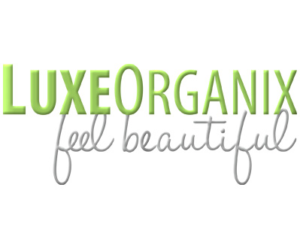summary
Recent studies show that consumers are missing the most sensitive areas on their face while applying sunscreen and face moisturizers. Researchers say that it is absolutely critical for these cancer-prone areas to be covered for optimal skin protection and repair. Continue reading
prREACH
Mesa, AZ, May 09, 2019 /prREACH/ -- The use of an organic face moisturizer for sun protection has risen in popularity in recent years, but a report released last month has shown that individuals who use facial moisturizers for sun exposure defense and repair tend to miss applying it to several key cancer-prone areas on their face. According to a recent article by Healthline, people are forgetting to protect some of the most sensitive areas of their face, such as the lips, ears, and eye areas.
LuxeOrganix, producer of natural beauty and skincare products, has developed an organic face cream infused with Vitamin C that may help treat and prevent UV-induced skin damage. However, they agree that educating people on the proper usage and application of sunscreen and facial moisturizers, particularly those that contain SPF, in the first place is key.
“Consumers are using an organic face cream regularly to help repair sun damage to their skin, but getting the best results starts with proper application to their face. We often forget about areas like our lips, ears and around the eyes when applying sunscreen, even though these make up the face’s most sensitive areas and the most cancer-prone. Studies show that people aren’t using their sunscreen and moisturizers to their fullest potential when it comes to both prevention and repair of sun exposed skin,” says LuxeOrganix founder, Christine Kominiak.
Skin cancer is the most common form of cancer, with the American Academy of Dermatology reporting that 9,500 people are diagnosed with some form of skin cancer every day in the United States. The study outlined by Healthline, performed by ophthalmic and oculoplastic specialists from the University of Liverpool, found that more than 16 percent of participants did not cover the sensitive parts of the face and head.
Kominiak continues, “While our organic face moisturizer is certainly not a replacement for SPF or sunscreen, it is infused with Vitamin C that will help repair sun damage to the face. Since most people are not using their sun protection properly, these sensitive parts of the face can become significantly sun-damaged over time, increasing the risk of skin cancer. People are realizing this and turning to face moisturizers with vitamin C to help repair this damage.”
With the mission of providing organic and safe skincare products to consumers, LuxeOrganix recently released their Vitamin C face moisturizer in an airless pump, which helps increase the product’s potency and keep it lasting longer. In addition, their under eye cream for dark circles also contains Vitamin C and can be paired with their face cream to provide better skin support to the sensitive areas around the eyes.
For more information on organic skincare and beauty products, visit LuxeOrganix’s official website or Amazon storefront.
